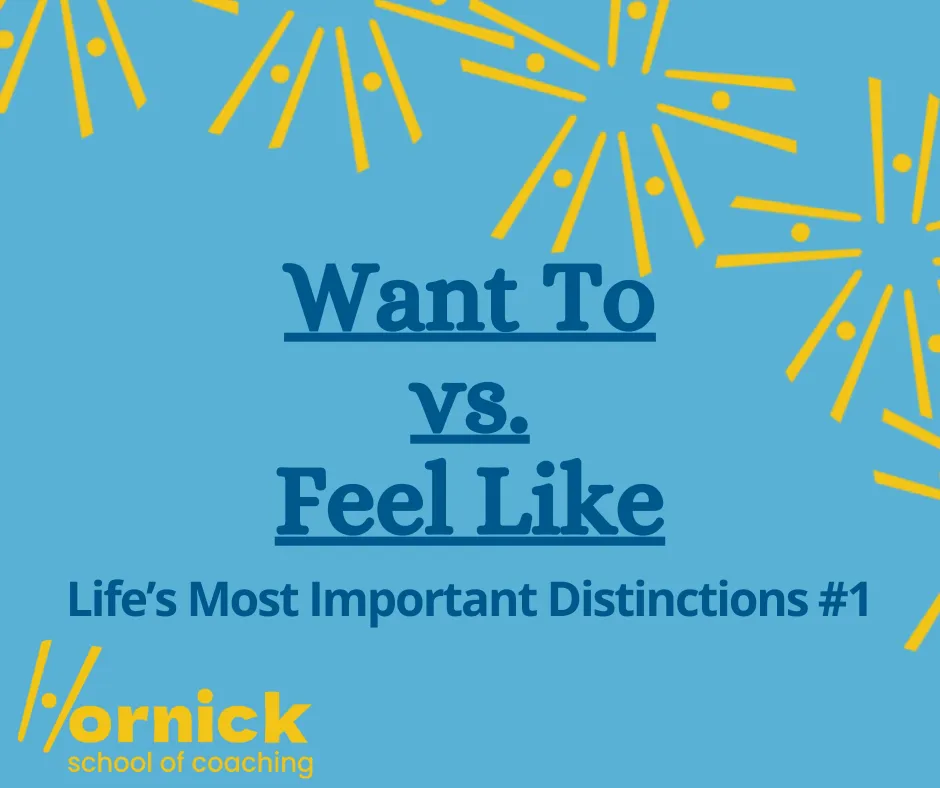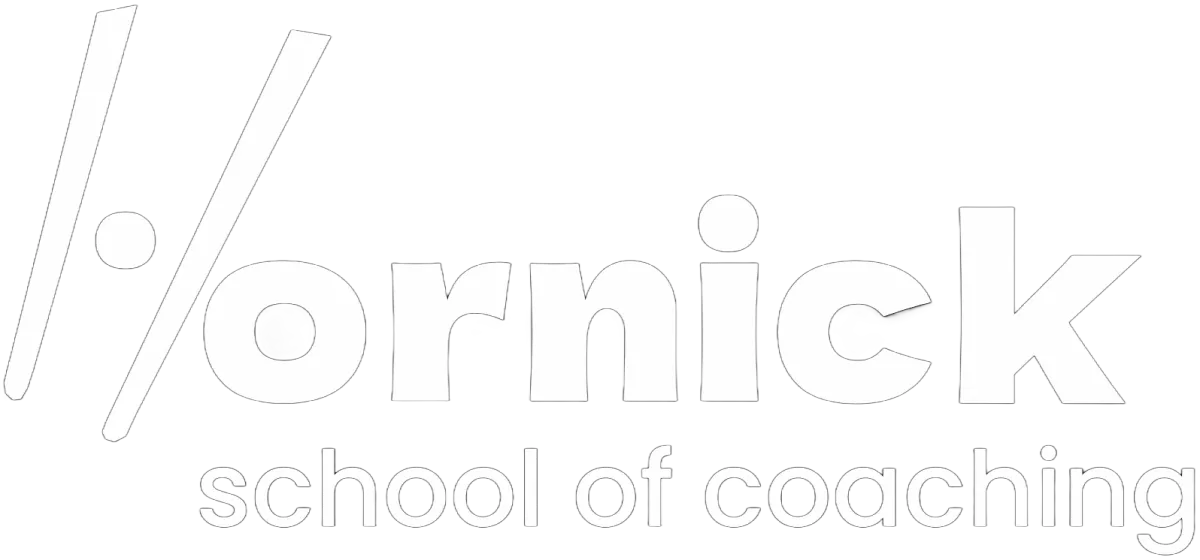
Want To vs. Feel Like - Life’s Most Important Distinctions #1
When what we “want to” do becomes what we “feel like” doing, we become more powerful and our lives flow better.
That’s a little cryptic. But, it’s important. So, let’s break it down.
First, what’s the difference between “want to” and “feel like.”
“Feel like” comes to us. Maybe we ask ourselves, “What do I feel like doing?” [Or eating? Or saying?] Maybe we don’t even ask. It’s just there. “I feel like doing such and such.” The key thing is that you don’t go through a process of conscious choice. “Feel like” is instinctive, habitual, and reactive.
“Want to” requires imagination. It requires the uniquely human creative imagination which comes with a large frontal lobe. What we “want" is informed by our imagination. We imagine something that does not yet exist. We imagine the future that we “want.” Then, that informs our choice of what to do.
I feel like lying in bed. That’s fine. I can lie in bed.
At the same time, I “want to” get a good workout done at the gym because I “want to” make this body more fit. I imagine this body more fit, and I “want” that. So, I want to get up. Feel like lying in bed. Want to get up.
What we “want to” do is what moves us toward our creative future.
When we only do what we “feel like” doing, we lose creative power. When we ruminate between what we “want to” do and what we “feel like” doing, it can use up a lot of our energy and usually feels yucky.
We can always choose to do what we “want to” do, and we can always make that choice fast. I recommend that.
Sometimes what we “want to” do overlaps with what we “feel like” doing. That’s where a certain magic happens.
As what we “want to” do becomes more and more habitual, it overlaps more and more with what we feel like doing. That unleashes a lot of power in us. Life flows.
[Note: Please don’t let this article make you believe that what we “feel like” doing, that instinctual message, is a bad thing. In fact, it’s a fantastic thing. It’s just not always the wisest messenger to inform our actions. We’ll unpack that together another day.]

